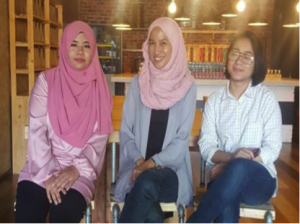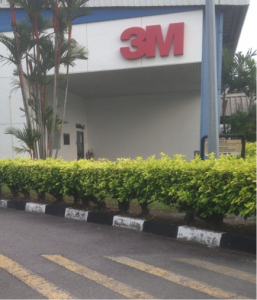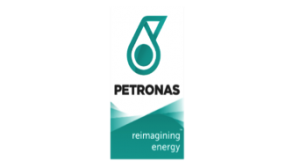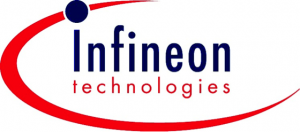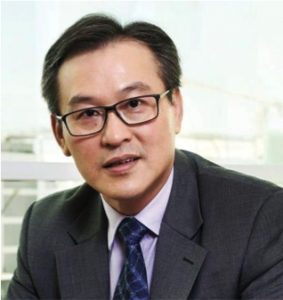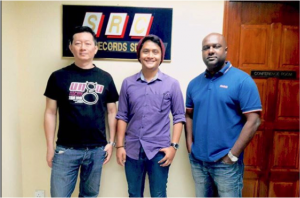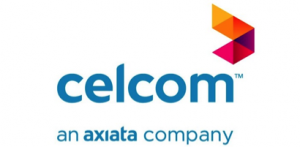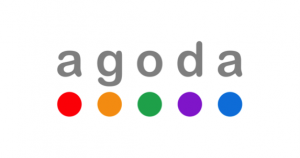
Written by Nur Hawa Shafiqa A Zulkefli
Agoda was established in 2005. It was quickly expanded through Asia. It was found by the world’s largest seller of rooms online known as Priceline Group. The group owned more than five companies including Agoda. Agoda, the world’s fastest-growing online travel booking platform headquartered in Singapore and with 53 offices in major cities over 30 countries. It has approximately 3,700 staff worldwide.
The main goal of Agoda is to provide a network of more than 2 million accommodation properties, including apartments, villas, homes and hotels backed by more than 15 million traveler reviews. Besides, Agoda started up with non-hotel accommodation, offering villas and homes throughout the countries in the first place.
Technology has changed the face of travel bookings. Agoda, a global online accommodation reservation provider, allow the travelers to book hotels, resorts, apartments or villas online. It helps travelers to find and explore new experiences in new destinations worldwide. With the reviews from other travelers, a traveler may find it easy to book the reviewed hotels based on the previous traveler’s experience.
Agoda International (Malaysia) Sdn. Bhd. is located in Jalan Tun Sambanthan, Kuala Lumpur Sentral. Different departments in Agoda provide an environment with originality, teamwork, and experimentation to the employees.
Competition
The survival of Agoda does not allocate other online accommodation platforms to stop operating. It is not just Agoda which provides the travelers with hotels and flight accommodation, there are also Expedia, Traveloka, Trivago and many more. It is quite difficult for Agoda to stand strong in the industry. The airline booking platform itself offers the passengers with hotel information. Therefore, it is easier for them.
In order to compete with others, Agoda offers the clients with variety of advantages such as hotel discount for its member. They are entitled to a discount when booking a room via Agoda. Agoda may offer its regular clients with breakfast or hi-tea coupon after the discussion with hotel representative. Agoda has similar characteristics with other competitors in term of their services. One thing that differentiates Agoda is the brand itself.
Communication tools
Agoda most used e-mail to communicate with clients. Any information for instance reservation receipt and other type of important information would be sending to nominee as a reminder. E-mail receiver, on the other hand has option whether to print the receipt out or not. In order to attract audiences, Agoda need to place more advertisements. Hence, the most preferable social platform is Instagram and Facebook.
Instagram may have won young user’s heart, but Facebook can create greater performance. Both platforms may reach larger audiences. Majority of business people used Facebook. Similar to Facebook which famous with share button, repost apps in Instagram allow Agoda to repost client’s photos using hashtag. Agoda shares photos, as well as videos, advertising and promoting hotels and interesting places to go.
Challenges
Apart from competitive challenges, another challenge faced by Agoda Malaysia is language. Although one of the requirements to get a position in Agoda is English, English seems to be a barrier for the employees to deal with clients. English is an international language. But it seems to be difficult to understand with accents. English with accents is not easily understood by others.
In dealing with international company, Agoda faced difficulties in identifying true market need. It is because there are so many competitors out there. What Agoda need is market research. Hence, Agoda applies an approach by sending out survey to their clients via mail, asking their satisfaction using Agoda and its performance. In competing with other brands, more research has been done to provide its clients with best service.


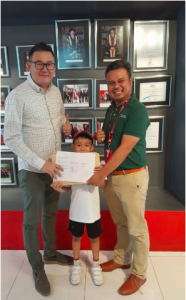 Such opportunities for transfer programmes are developed by Taylor’s University’s Global Mobility Office (GMO). Their effort has been tremendous, as Taylor’s now will see a larger pool of global partnership in 30 countries by year 2018. Austria, Denmark, Finland, The Netherlands, France, Spain and Italy are all eager to start their partnership with Malaysia, as they want their students to have the Asian experience in a well facilitated environment for international students. Mr Ahmad said they are placing high hopes on signing more partnership agreements with other potential countries, including Macau, Ireland and Norway.
Such opportunities for transfer programmes are developed by Taylor’s University’s Global Mobility Office (GMO). Their effort has been tremendous, as Taylor’s now will see a larger pool of global partnership in 30 countries by year 2018. Austria, Denmark, Finland, The Netherlands, France, Spain and Italy are all eager to start their partnership with Malaysia, as they want their students to have the Asian experience in a well facilitated environment for international students. Mr Ahmad said they are placing high hopes on signing more partnership agreements with other potential countries, including Macau, Ireland and Norway. 